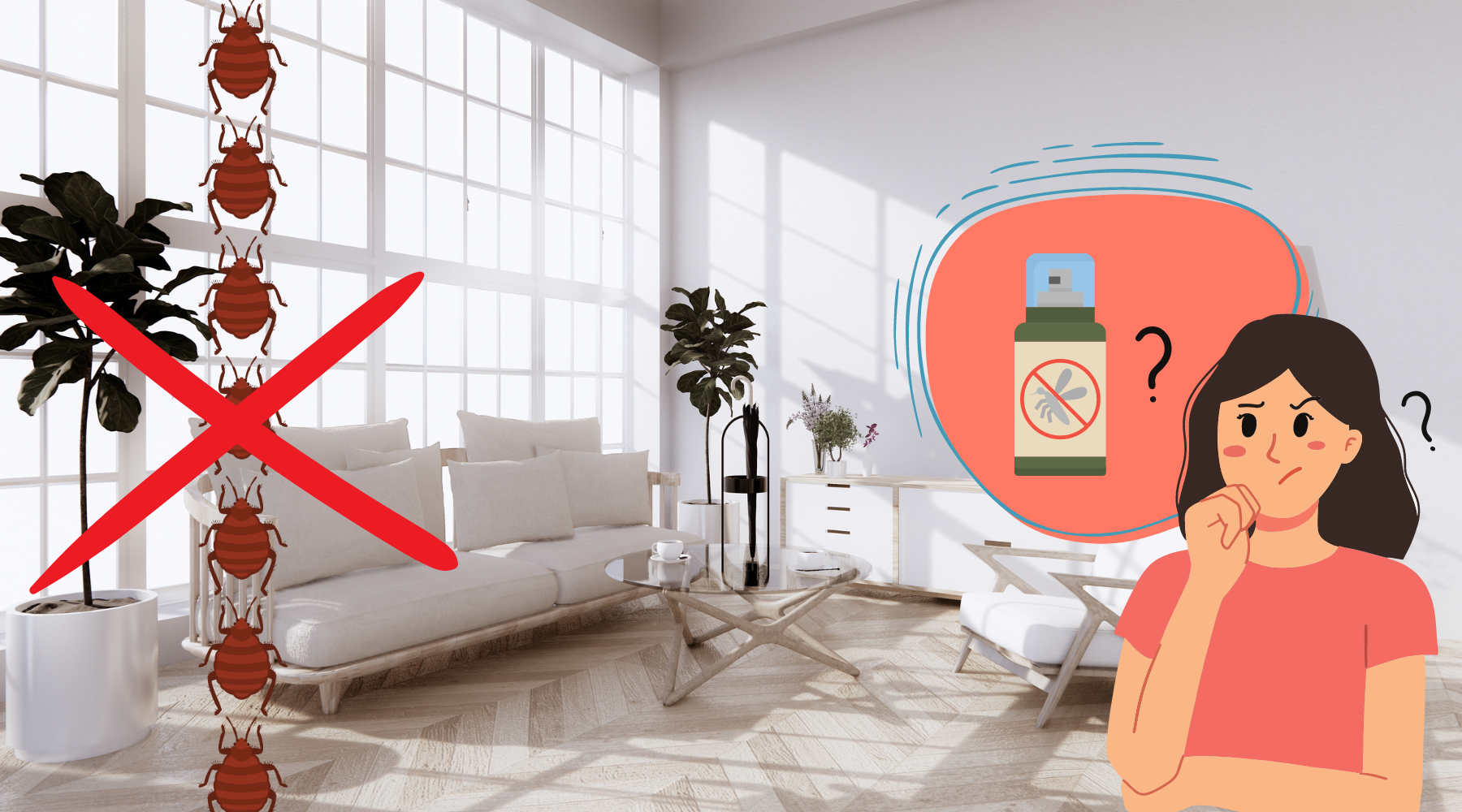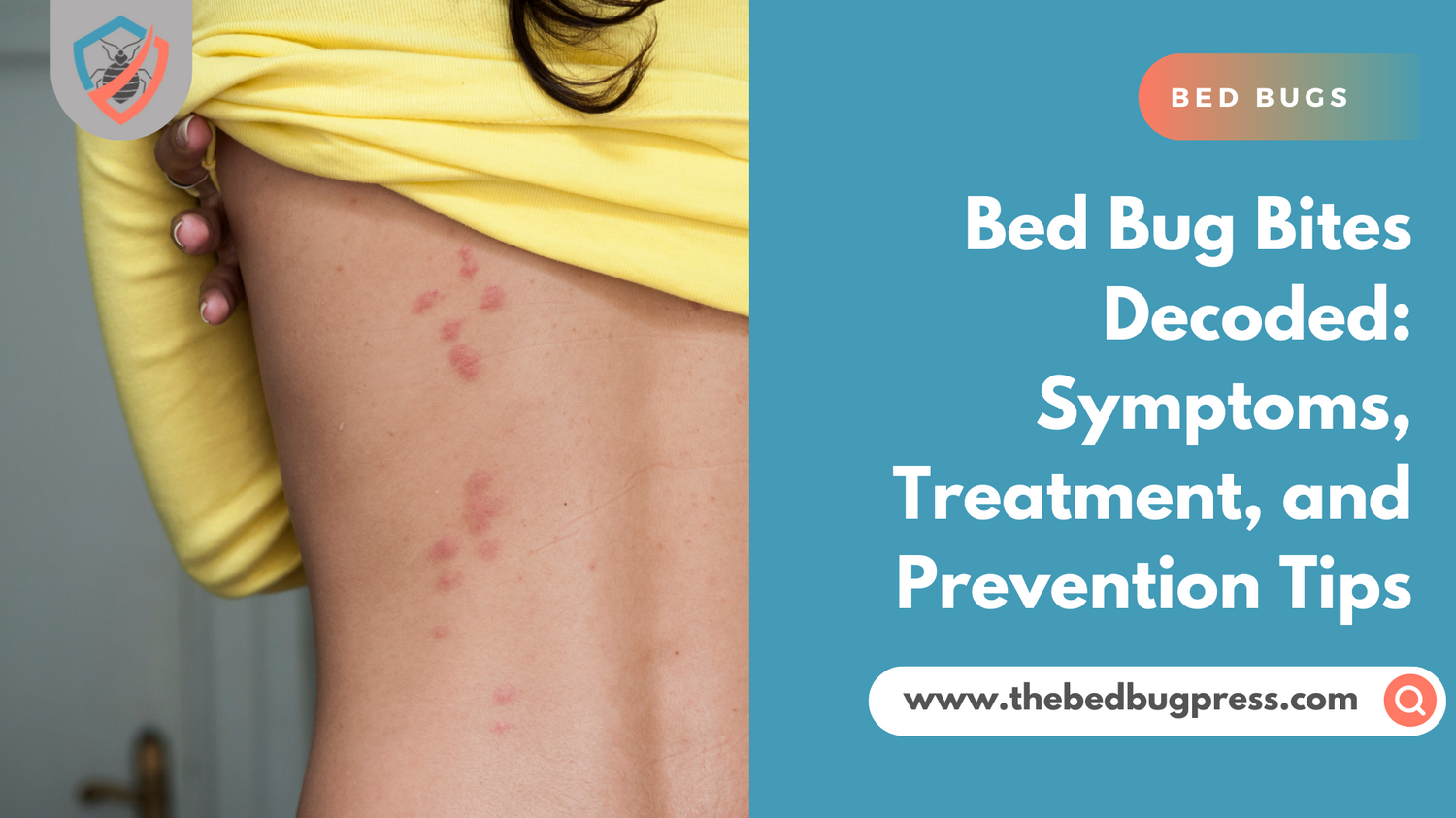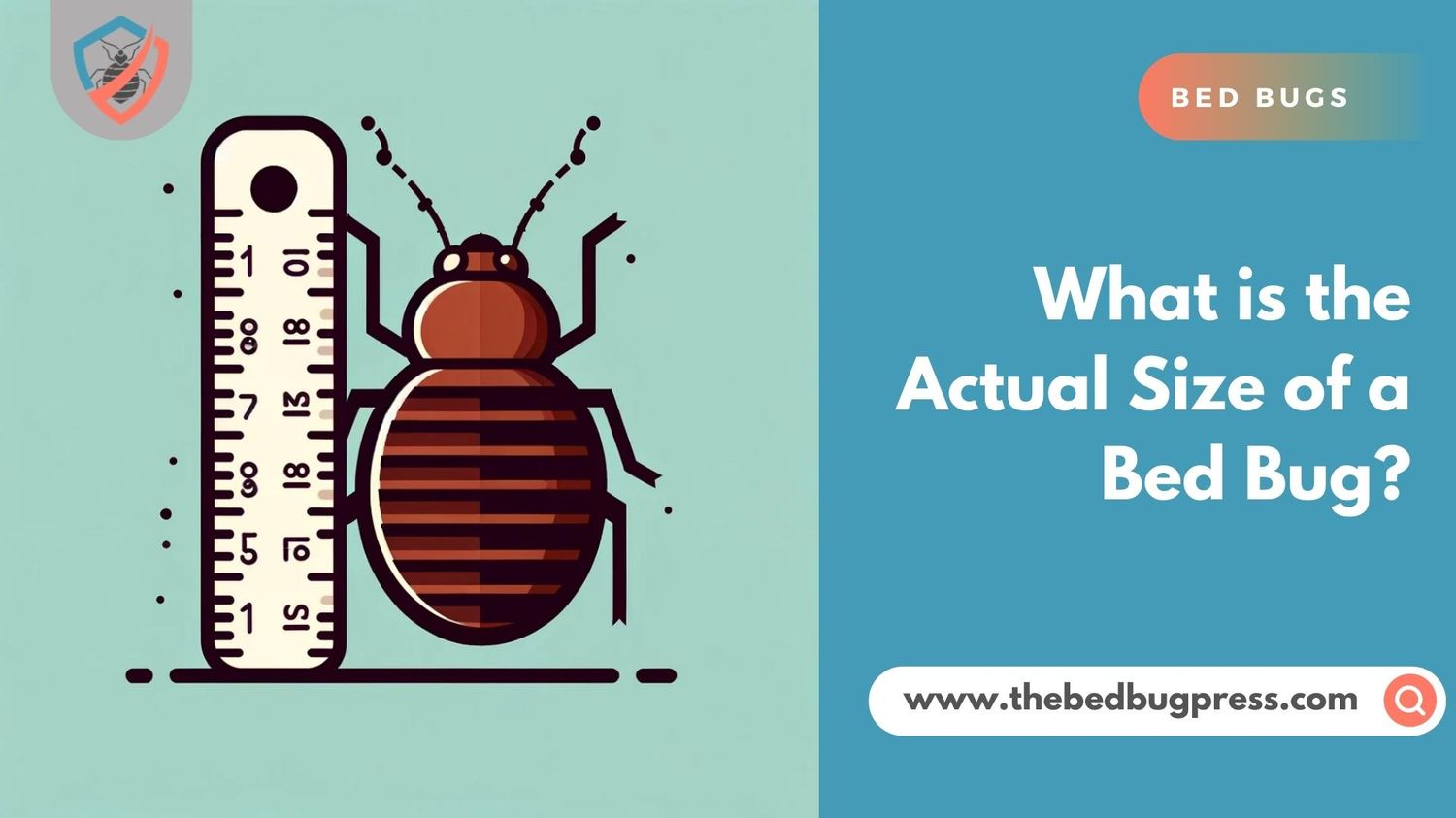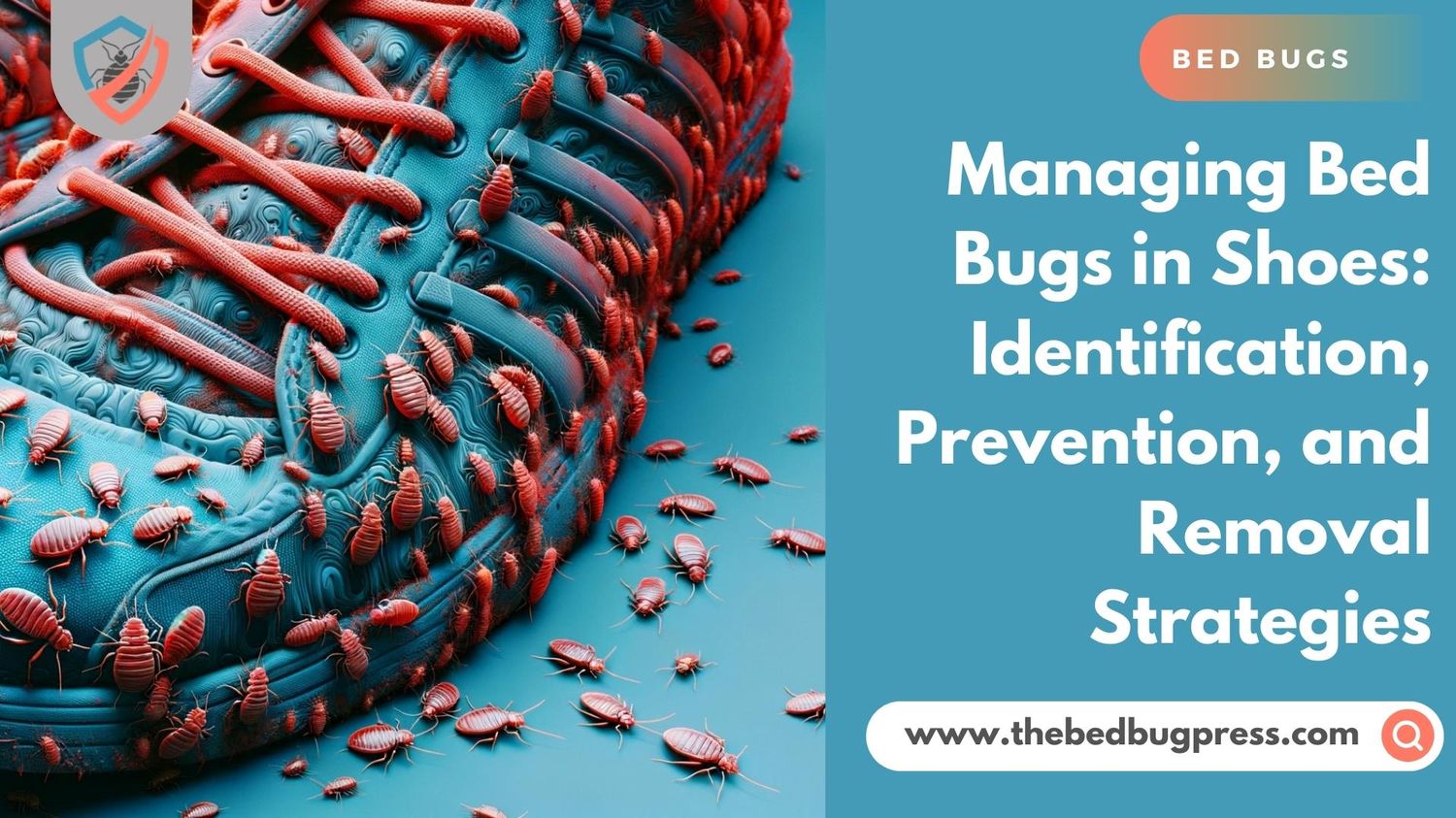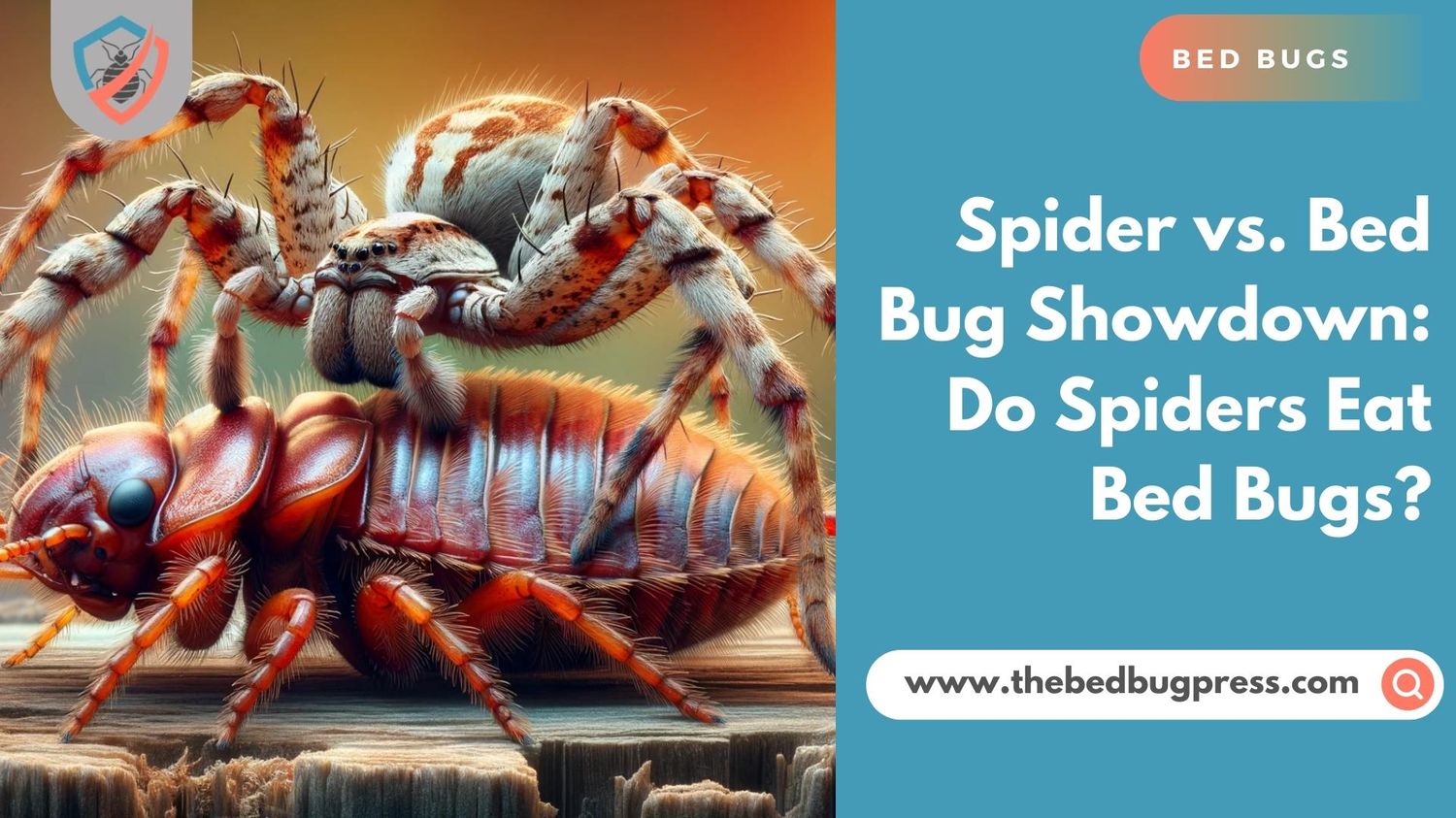Wondering if commercial insect repellent can help control bed bugs in your home? Many homeowners debate the use of mosquito repellent to deter bed bugs, so let’s look into it! We’ll explore if using insect repellents like DEET can actually help keep bed bugs away and see what scientific research says about their effectiveness on bed bugs.
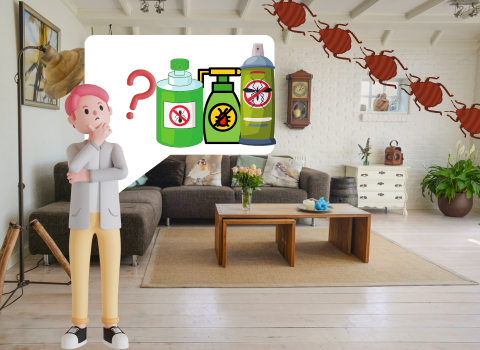
Putting Mosquito Repellent to the Test: Does it Keep Bed Bugs Away?
It is not a secret that both bed bugs and mosquitoes can be a real nuisance, but have you ever wondered if mosquito repellents could help with bed bugs too? DEET, picaridin, and IR3535 are popular ingredients found in many mosquito repellents. But do they work just as well against bed bugs? Let’s take a look and see what the research has to say about using insect repellents for bed bug control.
While there are some research studies suggesting that it can have a repellent effect, other studies indicate otherwise. For instance, an investigation published in the Journal of Medical Entomology showed that a commercial mosquito repellent containing 7% DEET had limited success deterring bed bugs from feeding on a treated surface.
There are also studies showing promising results. In 2014, the Journal of Insect Science published a study saying that a product that contains 2% soybean oil. 1% peppermint oil and 1% geraniol worked effectively in repelling bed bugs from feeding on human blood.
Though the product is not technically considered a mosquito repellent, it is still formulated with the same ingredients used in mosquito repellents. Thus, suggesting that it affects altering the behavior of bed bugs.
Though some mosquito repellents have limited effects on bed bugs, though there are effective bed bug repellents, these products cannot be used as the sole solution for bed bug infestation. Instead, you should consider using integrated pest management or a combination of various bed bug treatments. These may include steaming, vacuuming, and using insecticides formulated to kill bed bugs.
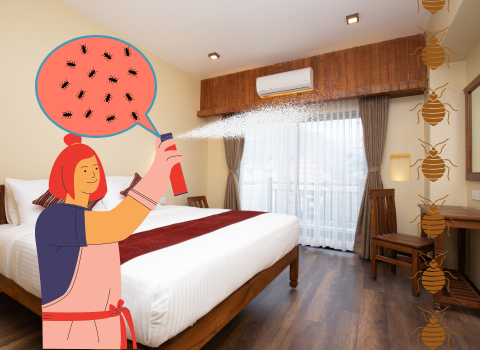
Can DEET Kill Bed Bugs?
DEET is a commonly used ingredient in insect repellents, effective against ticks, mosquitoes, and other biting insects. However, the effectiveness of DEET as a repellent for bed bugs is still a topic of debate. It is important to note that using DEET alone is insufficient for eradicating bed bugs due to their resilient exoskeletons, which provide protection against most insecticides.
Research on the impact of DEET on controlling bed bug populations has yielded mixed results. Most studies indicate that DEET is primarily designed to repel bed bugs rather than eliminate them. Therefore, it is not considered a comprehensive solution for controlling bed bug infestations.
To effectively address a bed bug problem, it is advisable to utilize a combination of various bed bug treatments aimed at extermination. If you suspect a bed bug infestation, it is recommended to seek the assistance of a pest control professional who can provide expert guidance and identify the most effective and safe treatment options.
Is DEET an Effective Bed Bug Repellent?
While DEET insect repellents are known for their effectiveness against biting insects, their efficacy may not extend to bed bugs.
Although DEET can influence the behavior of bed bugs to some extent, its effects are not long-lasting. Some studies suggest that DEET can repel certain types of bed bugs, but not all. Therefore, relying solely on insecticides or mosquito repellents, including DEET, may not be the most effective approach.
To effectively combat bed bugs, it is advisable to consider specialized bed bug treatments. These treatments are specifically designed to target and eliminate bed bug infestations, providing a more comprehensive and reliable solution.
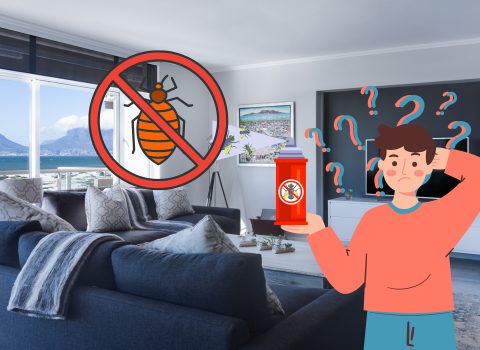
Will DEET Work for Controlling Bed Bug Infestations?
Although DEET may have limited repellent effects on certain bed bugs, it is unlikely to significantly impact a bed bug infestation. Bed bugs possess a resilient outer shell that shields them from various insecticides, including DEET. Furthermore, DEET is primarily formulated as a repellent rather than a lethal agent, resulting in short-lived effects.
Several studies have explored the efficacy of DEET against bed bugs and found that it can deter some bed bugs for a brief period. However, it cannot be relied upon as a dependable solution for infestation control.
To effectively manage bed bugs, a combination of methods should be employed, including thorough vacuuming, steam treatments, and the use of insecticides specifically formulated for killing bed bugs only.
Addressing the underlying cause of the infestation is also crucial, which involves identifying and treating the primary source of the bed bugs. If you are confronted with a bed bug infestation, it is advisable to seek guidance from a professional pest control expert who can offer safe and effective treatment options.
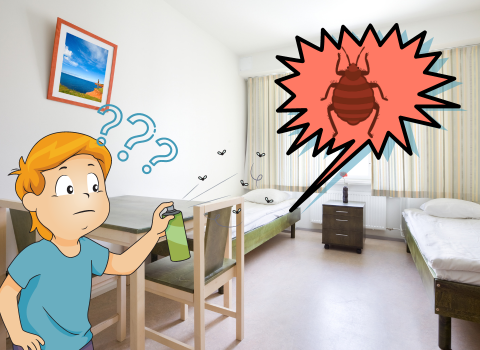
Should You Still Consider Using DEET in Eliminating Bed Bugs?
When it comes to using DEET as a means of eliminating bed bugs, there are several factors to consider. DEET is a widely recognized ingredient in insect repellents and is known for its effectiveness in repelling mosquitoes, ticks, and other biting insects. However, its efficacy against bed bugs is a topic of debate among experts.
Bed bugs possess a resilient exoskeleton that offers them protection against many insecticides, including DEET. While DEET may have some repellent effects on bed bugs, it is unlikely to provide a comprehensive solution for eliminating an infestation. The primary purpose of DEET is to deter insects rather than kill them.
Research on the effectiveness of DEET in controlling bed bugs has yielded mixed results. Some studies suggest that DEET can repel certain bed bugs for a short period, but it does not serve as a reliable method for long-term control. Therefore, relying solely on DEET as a treatment for bed bugs may not be sufficient to eradicate an infestation.
It is important to note that effective bed bug control typically requires a combination of various methods and treatments. Professional pest control services often employ integrated pest management (IPM) strategies that involve a comprehensive approach to eliminate bed bugs, including the use of insecticides specifically formulated for bed bug control, heat treatments, steam treatments, and targeted inspections.
If you are facing a bed bug infestation, it is advisable to consult with a reputable pest control professional who can assess the severity of the problem and recommend an appropriate treatment plan.
They will have the expertise and knowledge to employ a range of methods to effectively eliminate bed bugs from your home, considering factors such as the extent of the infestation, the specific areas affected, and the best combination of treatments to achieve optimal results.
Talking with a pest control professional will help in learning more about using DEET in getting rid of bed bugs. This way, you can guarantee the results and be able to put a stop with the infestation before it gets worse.
Importance of Using the Right Bed Bug Treatment for Your Bed Bug Problem
Bed bugs are notoriously challenging to eliminate, and it is vital to choose the appropriate treatment for your specific bed bug problem to achieve effective control and eradication. Opting for the wrong treatment for bed bug problems can result in ineffective outcomes, wasted time, financial resources, and even potential health hazards.
There are several treatment options available for bed bugs, including:
DIY Methods
DIY methods may appear cost-effective, but they may not be as efficient as professional treatments, and improper usage can pose dangers.
Professional Pest Control Services
Professional pest control services offer a range of treatment options, such as heat treatments, insecticide treatments, and fumigation. However, it is crucial to select a reputable and experienced pest control company to ensure the safety and effectiveness of the treatment.
Additionally, using the appropriate treatment for your specific bed bug problem is essential to prevent future infestations. Different types of infestations, varying in severity or occurring in distinct areas of the home, may require different treatments.
Collaborating with a professional pest control company enables the development of a comprehensive treatment plan tailored precisely to your requirements.
Choosing the right treatment for your bed bug problem is pivotal in effectively eliminating the infestation and preventing future issues. Working with a professional pest control company provides access to safe and effective treatment options tailored to your unique needs.

